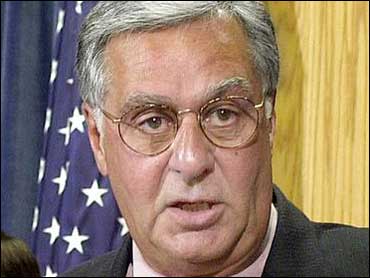The second in a three-part series about Dick Armey and his relationship to the tobacco industry throughout his career. See part one here.
In 1993, Armey’s son, David Armey, got a job with the Ramhurst Corporation, a company created through R.J. Reynolds’ effort to set up astroturf “smokers rights” groups throughout the country in the mid-1980s. RJR created these groups to give the appearance that smokers across the U.S. were coordinating a grassroots uprising against state and local smoking bans, which at the time were being introduced more frequently across the country.
Ramhurst hired David Armey as a contract lobbyist to help the tobacco industry fight clean indoor air laws in the states.A promotional brochure for CAGW quoted Armey praising the group, saying “CAGW has worked tirelessly to educate taxpayers and policy makers alike about the many recommendations in the Contract. The experience and clout CAGW has earned … make it a natural choice for our coalition to revolutionize government.”
Billionaire industrialists Charles and David Koch founded CSE in 1984 as a means to help fight taxes and government regulations on their businesses – two goals that meshed well with Armey’s free-market philosophy. CSE and Armey worked together symbiotically to promote each others’ political positions and boost each other’s political influence on issues.
CSE aggressively helped Armey promote his pet idea of replacing the income tax with a flat tax, and provided Armey with plenty of high-profile public speaking opportunities where he could promote his flat-tax idea.
After Armey became House Majority Leader in 1995, CSE organized a rally in Dallas, Texas where Armey spoke about the flat-tax. That same year, Armey issued a big fundraising appeal on behalf of CSE in which CSE mass-mailed out a push-poll framed as a “public opinion survey” that was designed to stimulate grassroots support for Armey’s flat-tax idea.
In the appeal, Armey asked recipients to send the completed surveys back to his office so he could “help convince my colleagues in the House of Representatives to pass this important flat-tax bill.”
Armey praised CSE in his 1996 book, “The Flat Tax: a citizen’s guide to the facts on what it will do for you, your country and your pocketbook.”
Armey wrote, “…they [CSE] have performed outstanding service to the flat tax and the cause of limited government.” CSE also arranged for Armey to speak to a crowd of CSE Foundation members at a Planet Hollywood in San Diego, California during the 1996 Republican National Convention.
Continue to Part 3.
Subscribe to our newsletter
Stay up to date with DeSmog news and alerts







